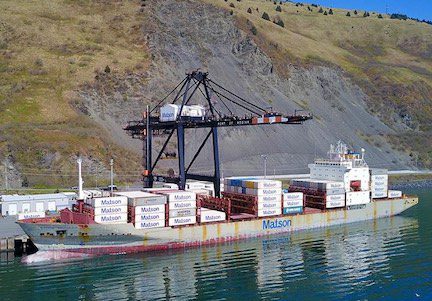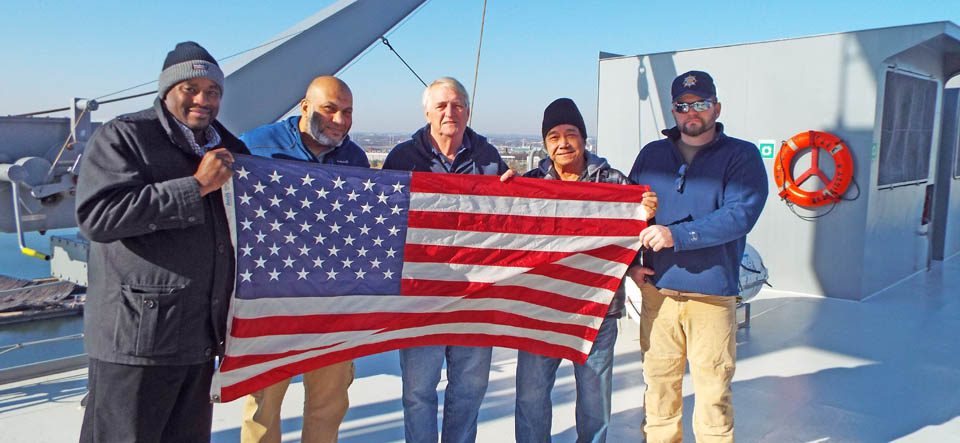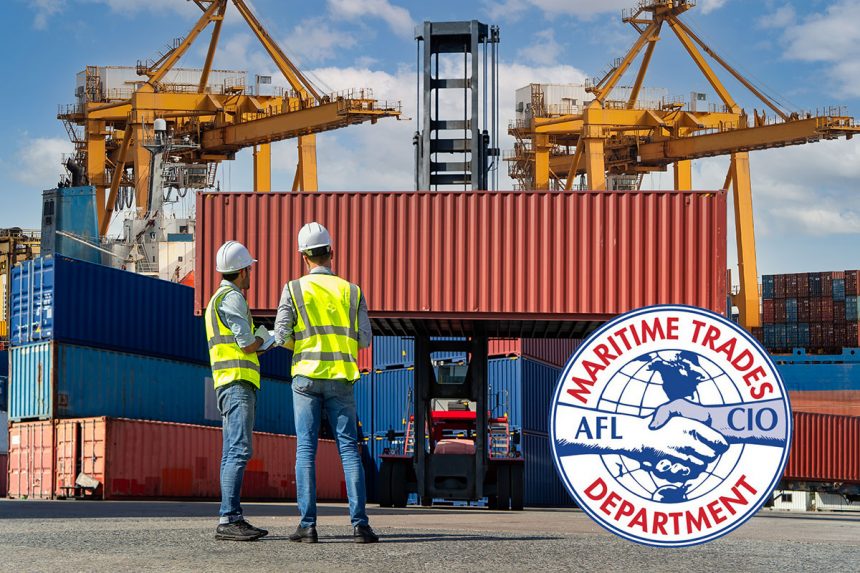
June 5 marks the 100th anniversary of the passage of the Merchant
Marine Act of 1920. Within this important legislation is the language
that governs America’s waterborne freight cabotage — the Jones Act.
Named for the bill’s primary sponsor — U.S. Senator Wesley Jones
(R-WA) — the Jones Act simply states that cargo moved from one
domestic port to another domestic port must be carried aboard a
U.S.-crewed, U.S.-flagged, U.S.-built and U.S.-owned vessel.
The Jones Act oversees the movement of goods along America’s ocean
shorelines, Great Lakes’ ports and inland waterways.
 “The Jones Act remains a pillar of not only the United States maritime
“The Jones Act remains a pillar of not only the United States maritime
industry, but also our country’s national, economic and homeland
security,” stated MTD President Michael Sacco.
“It’s a source of family-wage jobs both on the water and ashore. It
protects our nation in so many ways,” added Sacco, who is also the
President of the Seafarers International Union.
A 2019 study conducted by PricewaterhouseCoopers for the
Transportation Institute showed the Jones Act is responsible for
650,000 American jobs creating more than $40 billion annually in
income. Workers whose jobs are related to the law can be found in all
50 states.
Cargo shipping is not the only maritime aspect covered by the Jones
Act. It includes the U.S.-flag dredging industry as well.
“The Jones Act has been attacked by unsubstantiated claims for years,”
declared MTD Vice President Jerry Abell. “In this day and time of
viruses that we have no vaccines for and unprecedented death tolls,
this act should be our first line of defense to protect the American
shipping and dredging industries and the health of the American
workforce from foreign enemies. I cannot stress how important the
Jones Act is to the security and economical success of the country.”
(Abell is President/Business Manager for Dredging Local 25 of the
International Union of Operating Engineers.)
Throughout the decades, the Jones Act has received bipartisan support
from the White House and members of Congress. Military leaders also
have expressed their support for the law as it not only provides
well-trained American mariners who crew vessels taking needed goods
for armed forces located around the world, it also supplies another
set of eyes from American citizen-seafarers within U.S. ports, harbors
and waterways for unlawful activities.
“Many people do not realize that the Jones Act was not America’s first
cabotage law,” noted MTD Executive Secretary-Treasurer Daniel Duncan.
“In fact, among the original laws passed by the first Congress in
1789-90 were several designed to protect the nation’s fledgling
maritime industry.”
At one time, foreign-flagged and foreign-crewed vessels were permitted
to sail along the inland waterways and on the Great Lakes. These
vessels and crews did not then, nor have to now, meet America’s labor,
building and safety standards. After a series of disasters that
claimed American lives, Congress worked on various measures to
strengthen the cabotage laws.
During World War I, the United States did not have much of a merchant
fleet. Many businesses depended on commercial vessels from Britain,
France, Germany and other nations to export and import goods. When the
war took these vessels away, Americans were forced to pay a premium to
move cargo. This led to the 1920 Merchant Marine Act with its
inclusion of the Jones Act.
Despite its value to the American economy and the nation’s security,
the Jones Act continually faces attacks from outside interests.
Throughout its 74-year history, the MTD has fought to maintain the
integrity of the law.
The cabotage law of the Jones Act is not unique to the United States,
either. The London-based Seafarers’ Rights International released a
study in 2018 listing more than 90 countries have some type of
cabotage law on their books. Maritime unions around the world have
claimed the Jones Act as “the flagship of cabotage laws.”
“This centennial is worth celebrating — and the Jones Act is worth
fully preserving,” proclaimed Sacco. “America’s freight cabotage law
has served us extremely well for a century, and that’s why it has
always enjoyed strong bipartisan support along with powerful backing
from top military leaders.
“God bless the Jones Act which I believe is the most ‘All-American’
law in existence.”

